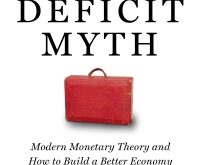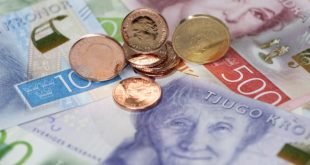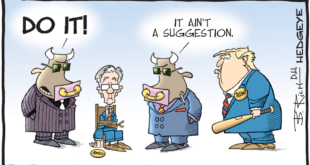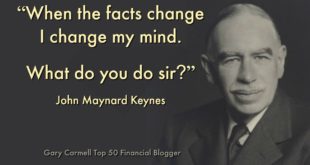from Lars Syll We have already shown that deficit spending increases our collective savings. But what happens if Uncle Sam borrows when he runs a deficit? Is that wht eats up savings and forces interest rates higher? The answer is no. The financial crowding-out story asks us to imagine that there’s a fixed supply of savings from which anyone can attempt to borrow … MMT rejects the loanable funds story, which is rooted in the idea that borrowing is limited by access to scarce financial...
Read More »En statsbudget för Sveriges bästa
En statsbudget för Sveriges bästa En statsbudget i balans optimerar inte det reala resursutnyttjandet i ekonomin. Statsbudgeten och dess ramverk ska i stället verka för Sveriges bästa, så att tågen kan rulla och sjuka får vård, skriver Erik Arnell, utredare, Johannes Borgström lektor och docent vid Uppsala universitet och Peo Hansen, professor i statsvetenskap vid Linköpings universitet. Det gläder oss att Jesper Hansson understryker vikten av att statens...
Read More »MMT — debunking the deficit myth
MMT — debunking the deficit myth We have already shown that deficit spending increases our collective savings. But what happens if Uncle Sam borrows when he runs a deficit? Is that wht eats up savings and forces interest rates higher? The answer is no. The financial crowding-out story asks us to imagine that there’s a fixed supply of savings from which anyone can attempt to borrow … MMT rejects the loanable funds story, which is rooted in the idea that...
Read More »Daniel Waldenströms rappakalja om ojämlikheten
Daniel Waldenströms rappakalja om ojämlikheten Medan Piketty ser det ekonomiska systemet som en ojämlikhetsskapande faktor ser Waldenström marknaden som lösningen … Piketty och Waldenström är eniga om politikens, demokratins och utbildningens viktiga roll för den utveckling som skett mot ökad jämlikhet. Den stora skillnaden ser vi i inställningen till presenterade fakta. Waldenström säger att Pikettys analys är ”bitvis ideologisk”, men jag kan inte finna...
Read More »AJR, Nobel, and prompt engineering
from Peter Radford Well done AJR. A prize deserved. And remarkably little grumbling. What’s wrong with that? In other news, my wife is deep into creating an artificial intelligence application. One of the great challenges of getting AI to be useful is something called ‘prompt engineering’. What have these two snippets of news have in common? The great thing about our better economists — the triumvirate we know affectionately as AJR being an example — is that they all seem to...
Read More »MMT explained
.[embedded content]
Read More »Statens finanser funkar inte som du tror
Statens finanser funkar inte som du tror Sex av åtta riksdagspartier har nyss ställt sig bakom ett nytt stramt finanspolitiskt ramverk. Osagt i diskussionerna kring ramverket är en bakomliggande föreställning att staten fungerar som ett hushåll eller ett företag: Att det är osunt och riskabelt för staten att ”leva över sina tillgångar” och att dra på sig stora skulder. Att ”den som är satt i skuld är inte fri”. Metaforerna och liknelserna är lika talrika...
Read More »Central bank independence — a convenient illusion
from Lars Syll Today’s model of delegation has much to recommend it. But it should not be cloaked in euphemism. It is an abrogation of democratic sovereignty for pragmatic reasons, conditioned on the one hand by deeply entrenched and unflattering assumptions about electoral politics and, on the other, on an unquestioning acceptance of the private organization of credit markets and their lack of confidence in democratic control of economic policy. This may be an abrogation that we are...
Read More »For a new fiscal policy framework
For a new fiscal policy framework Poorer and lower-income households have a higher marginal propensity (MPC) to consume than richer and higher-income households. The more equal income and wealth are distributed, the higher the structural level of demand of an economy. A high structural level of demand in turn reduces the need for public deficits: full capacity utilisation is already achieved at a lower level of debt and deficits. The more unequal the...
Read More »How to become a Keynesian
How to become a Keynesian Until [2008], when the banking industry came crashing down and depression loomed for the first time in my lifetime, I had never thought to read The General Theory of Employment, Interest, and Money, despite my interest in economics … I had heard that it was a very difficult book and that the book had been refuted by Milton Friedman … Baffled by the profession’s disarray, I decided I had better read The General Theory. Having done...
Read More » Heterodox
Heterodox





